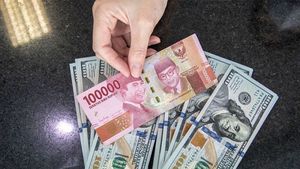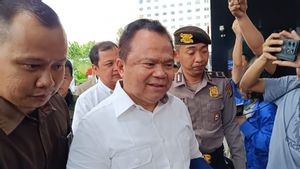JAKARTA - Indonesia will enter the political year in 2023. Domestic consumption is also predicted to experience a significant increase in that year.
Government spending is said to be one of the supporters of the economy, especially through populist spending, such as disbursing social assistance (bansos) and subsidies.
This was stated by economist and Director of the Center of Economic and Law Studies (Celios), Bhima Yudhistira, in the online "Momentum for Economic and Political Consolidation" Business Challenges 2023, Thursday, December 15.
Bhima said a number of economic sectors seemed to be looking forward to the democratic party every five years because it would have a rapid impact on economic growth.
Government spending ahead of the election will encourage domestic economic activity, thus supporting economic growth. "In terms of growth, government spending was higher one year earlier (from the election implementation), for example in 2014 that time and 2018 one year before 2019, growth was above 4 percent," he said, on Thursday, December 15. According to Bhima, government spending growth will be higher in the election year. Later, an increase will occur both in the spending on the implementation of elections, as well as other related aspects, so household consumption tends to grow above five percent. "There is a tendency for spending to be more populist, the disbursement is faster, and some budget absorption related to social assistance, subsidies, it usually increases before there is a political event," he said.
He said that the sectors in terms of spending that grew rapidly were expenditures other than households.
Some types of spending are related to spending on political parties, survey institutions, consultants, and others related to holding elections.
This can be seen from the movement of spending on non-profit groups that serve households (LNPRT).
In the first quarter of 2014 or one year before the 2015 election, LNPRT recorded a growth of 23.1 percent (year-on-year/yoy).
Similar conditions occurred in the fourth quarter of 2018, where LNPRT grew to 10.8 percent.
Its growth grew more significantly in the first quarter of 2019, reaching 16.9 percent (yoy).
"Although the contribution of the LNPR is relatively small, it does indicate that many sectors are gradually once every five years, occurring during the election effect which makes labor absorption in several sectors increase," added Bhima.
The English, Chinese, Japanese, Arabic, and French versions are automatically generated by the AI. So there may still be inaccuracies in translating, please always see Indonesian as our main language. (system supported by DigitalSiber.id)












